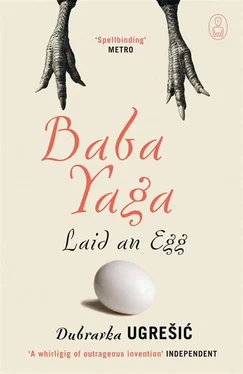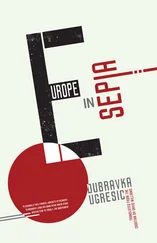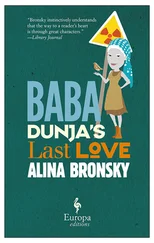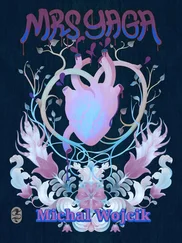Aaron’s father died in 1952, the same year that Pupa came out of prison, and his mother died in 1960. A little later the same year, Asja Pal married Michael Thompson and four years later she gave birth to a little boy, David, and then to a little girl, Miriam. Asja had never been to Yugoslavia, nor had she ever wanted to go. For her Pupa was a monster, a woman who had abandoned her own child in order to join the communists. Pupa’s second husband, Kosta, died in 1981. Their daughter Zorana studied medicine and got a job in a Zagreb hospital.
‘In the Vinogradska Hospital! Where I spent my working life as well!’ In her thoughts Beba whispered to David. It was through Zorana that Beba had met Pupa and somehow it happened that they had become friends. Zorana could occasionally be a bit jealous. ‘How come you get on so well with my mother,’ she would say, ‘when I’m forever quarrelling with her…?’ Who knows, perhaps the whole secret is that daughters always make excessive demands on their mothers. The mothers feel guilty, and then protest at both their guilt and the demands made on them. The daughters feel the same mixture of guilt and anger. And round it all goes in a closed circle. Oh, life is so confused! And then stories like this one come like a bolt of lightning out of the blue and turn the picture we have of others on its head. Perhaps that is why people hang on so desperately to their stubborn little truths, because who knows, if everything was put together, as in this case, people would fall apart. It is the brutal truth that what we know about other people could be contained in an insultingly small package.
Pupa tried to get in touch with Asja, without success. When she was finally able to travel, she went to London again. Asja had been so reluctant to meet her that Pupa went home in complete despair. That was why David had appeared like balm for a wound that had never healed. He learned Croatian and came to see Pupa whenever he could. The two of them, Pupa and he, became secret allies. Pupa adored him. When he opened his own legal office and began to earn a decent salary, David set about trying to trace the property of both his Jewish families, the Singers and the Pals. And by some miracle he succeeded in getting back the Singers’ family home in Opatija. It did not mean much to Pupa and she immediately offered to leave the house to him. He refused. Then, with his help, she sold it. The major part of the proceeds from the sale was invested in the bank in Pupa’s name. Quite recently, Pupa had called him and asked him to alter her will.
‘I presume that she didn’t tell you… That is, Pupa left a significant sum from the sale of the house to each of you,’ said David.
Beba, filled with a vague sense of guilt, started to count the things she had recently spent money on, some on massage, some on make-up and some on clothes, and then she had gone to change that five-hundred-euro note, but no one in this town was prepared to, and that was how she wound up in the hotel casino, because she thought that they would be able to change it there, because, in fact, she only needed fifty…
‘Pupa has left you a sum that will guarantee you a secure and peaceful old age,’ David repeated, because he could not work out what Beba was prattling on about so frantically.
‘I don’t need money. I’ve got my pension,’ said Kukla quietly.
‘So have I!’ said Beba, blushing, because she still could not take in the fact that the money in the hotel safe was hers.
‘I’ve brought all the papers with me. Pupa signed everything before you came here,’ said David.
‘So, you knew everything! Where we were going, and everything! She tricked us all, the old witch!’ cried Beba.
‘That’s what we used to call her… the old witch,’ said Kukla, apologising in her own and Beba’s name.
‘It’s only old witches who lay golden eggs!’ said David.
Kukla thought that the young man’s Croatian was not as good as it had seemed to her at first. Who knows where he came across that clumsy sentence?
‘What do you mean by that?’
‘It’s an old Polynesian proverb. It means that old women do good deeds.’
Let us pause here for a moment to say that life is a field where the wind always blows, while the tale may expand and contract as it goes.
At that moment Mevlo came into the restaurant, holding the little Chinese girl’s hand. The child was hopping from foot to foot and carrying a puppy in her arms, while a smile was spread over Mevlo’s face. When they came up to the table, Beba, wiping her tears away, remarked:
‘And since when have you been a swimming instructor?’
‘Oh, love, when they tell me “swim”, I swim! When they say “massage”, I massage!’
Mevlo sat down at the table, set the little girl down beside him, spooned raspberries, blackberries and blueberries into a bowl, poured cream over them and placed the bowl in front of her.
‘Here you are, sweetie-pie, try that!’ said Mevlo, as naturally as though the little girl were his daughter.
‘What’s the child’s name?’ Beba asked David.
‘Wawa.’
‘Wawa?’
‘And another thing,’ said David cautiously. ‘She’s not my daughter – she’s your granddaughter.’
There are all kinds of people in the world, good and bad. Beba had a heart as big as a frying pan and a mind that those around her did not consider worthy of mention. Between her heart and her mind there was a sudden short circuit. Beba was simply not in a position to take in the quantity of new information that had splashed over her like a bucket of cold water. That was why her eyes narrowed, she swayed on her chair, cried out something that sounded like ‘Awaw!’ and, dragging the tablecloth with her, crashed to the floor. There was general consternation in the restaurant: the waiters flocked round like seagulls, picked up the cutlery, wiped up the spilt milk, ran after a bun that was rolling over the floor. In a few seconds two male nurses appeared. They put Beba on a stretcher. The stretcher was followed by Kukla, after Kukla came David, after David Mevlo and after Mevlo skipped the little girl with the puppy in her arms. In the whole scurrying procession, it was only the little girl whose face showed no trace of anxiety.
‘Honestly! Why are you giggling, my pet?’ grumbled Mevlo.
‘Old ladies are funny!’ said the little girl.
‘My special friend has fainted, and you think it’s funny. What’s funny about it, eh?’
‘Awaw! Awaw!’ the child chirped, hopping from foot to foot.
‘Aw! Aw!’ the puppy joined in for the first time.
From his pocket Mevlo took a little wooden ladle decorated with Czech folk patterns that he had picked up on some local souvenir stall:
‘Here, see if this will help you calm down.’
‘Why?’
‘Vai, vai, vai! So you can make me soup when you grow up, that’s vai.’
The little girl burst into peals of silvery laughter.
Here it should be said that Mevlo found nothing strange about the fact that the little girl was speaking English and he Bosnian, but they understood each other very well. The only thing Mevlo could not understand was why the little girl kept repeating ‘Awaw! Awaw!’ But the little girl was only saying her name – Wawa – backwards, which was after all what Beba had done as she passed out. It was one of Beba’s little quirks, that at moments when things started going awry she would pronounce words backwards.
What about us? We keep going. While life finds humps and bumps to stumble on, the tale keeps hurrying and scurrying along.
Mr Shaker, Pupa, Pupa’s grandson, that nepos ex machina ! Goodness, how much had happened, and at what breakneck speed! Kukla had not yet managed to take any of it in properly, nor give it due consideration, and, what do you know, here she was dragging a completely strange little girl around after her and having to find some way of entertaining her until Beba came to and was able to get her bearings. And then the news that Beba’s son had died of Aids, that his partner had refused to take over care of the child and that Beba would have to take legal charge of her, because there was no one else to do it… It was all too much, too much even for a very bad novel, thought Kukla. But, then again, things happened, and, besides, life had never claimed to have refined taste. Each of them, Pupa, Beba and Kukla, had her own life, each of them had accumulated baggage on her way and each of them dragged her own burden after her. And now, all that luggage, piled up in one great heap, had collapsed under its own weight – the suitcases had burst at the seams and all their old junk was out in the open.
Читать дальше












